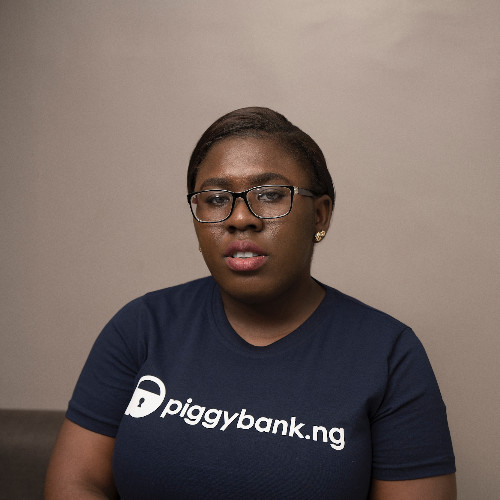[ad_1]
25-year-old Nigerian fintech entrepreneur Odunayo Eweniyi was voted one of the Top 100 Inspirational Women in Nigeria. Forbes Africa named her one of the top 20 young wealth creators in Africa.
In under three years, her startup PiggyVest has helped over 230,000 African millennials invest and save over $15 million, reversing the trend of not just millennials (20% of which think they’ll die in debt), but also narrowing the black/white wealth gap.
“PiggyVest actually exists because 80% of Nigerians—and probably Africans—need to save at least 40% of their monthly income to survive,” Eweniyi says. “The black dollar—or in my case, naira—is so important, much more important than most realize.”
In the business of finance and tech, Odunayo—as a woman—sits in the minority. This is exactly why her story is so important. In this Q&A, Odunayo breaks down the importance of black savings, her advice to aspiring founders, and why a broken financial system helped create a quarter million black investors.
BLACK ENTERPRISE: What made you want to become an entrepreneur?
Odunayo Eweniyi: I’ve always wanted to make an impact. I didn’t know how I would do it, but I felt a compulsion to. After graduating from university and trying and failing to get a gig that fit, it became clear that the only thing that’ll fit is something I started on my own. So, my journey as an entrepreneur started the same year I left university.
You’ve managed to effectively change how young Africans invest. How did the idea come about?
Piggybank.ng (now PiggyVest) started as a sustainable alternative to actual, physical piggy banks. People had been using that to save and the process was so flawed. But it also showed that there clearly was a gap in the finance industry that we could bridge.
How did you bridge it?
Piggybank.ng was built as an automated savings platform that helps Africans better manage their finances by making it clearer and more transparent. Our platform helps Africans save automatically. We focus on low-to-middle income earners who are struggling to meet up with their responsibilities and payments because they have no way of saving up. We automatically deduct fixed amounts of money from our users’ accounts periodically, according to their instructions toward a target.
Here in the U.S., we see Millennials and Gen Z who never invested now doing so through Robinhood, Qapital, and so on. Is there an appetite for this in Nigeria?
Huge! Piggybank.ng actually exists because 80% of Nigerians – and probably Africans – need to save at least 40% of their monthly income to survive. Because we have no credit system most of our payments are done in bulk, upfront, and in cash. The current African banking system, as it is, is heavily transactional—and the charges you incur when you interact with your account form part of a commercial bank’s revenue.
Right.
That doesn’t apply to Piggybank.ng. Our platform is personal, but yet super disciplined. Unlike the banks, Piggybank actually encourages saving by automating the savings process and creating a barrier to access.
How so?
You get four free withdrawal days in a year. Outside of that, withdrawal attracts a penalty. We also offer savings interests rates that are more than 50% better than that of commercial banks.
What’s the traction so far?
We now have over 230,000 users whom we have gathered organically, with about 50% of them actively saving on our platform. And we’ve so far saved over $15 million with about $7 million in assets under management. We concluded our seed funding round in March last year closing $1.1 million from local and international investors.
What’s your advice to young entrepreneurs of color, especially young women? How can they do what you’ve done? What’s the biggest piece of advice you can give?
Embrace the failures and the mistakes; they are opportunities to learn. Persevere; almost everything that is worth it takes time — and aim big. Don’t let anyone place limits on you, and more importantly don’t place any limits on yourself! Whatever you dream of, focus – like laser focus – and then go get it.
Black Enterprise Contributors Network
[ad_2]
Source link


